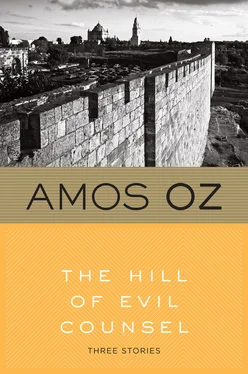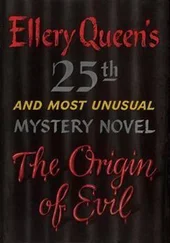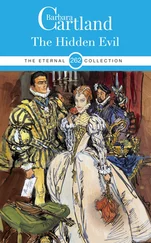All through the summer the children have exposed their skin to the blazing rays of the sun. Needless to say, I have done my duty. I have warned my neighbors, their parents, time and again that excessive exposure is bad for the skin and can even harm their general development. In vain. The settlers here, Orthodox shopkeepers, municipal and Jewish Agency officials, refugees, thinkers and stamp collectors, former pioneers, teachers, and clerks — they all agree in elevating sunbathing almost to the level of a religion. Perhaps they imagine that Jewish children who take on a bronze color cease to be Jewish children and become Hebrews. A new, tough race, no longer timid and persecuted, no longer sparkling with gold and silver teeth, no longer with sweaty palms and eyes blinking through thick lenses. Total liberation from the fear of persecution by means of this colorful camouflage. But I must put in a word of reservation here: I am not at all well read in either zoology or anthropology, and hence the comparison between what is happening here and the mechanism of protective coloration that is found in a certain type of lizard whose name escapes me cannot be regarded as substantiated.
However, I shall record my own private observations.
Jerusalem, Kerem Avraham, mid-1940's: Bunem begat Zischa, and Zischa begat Myetek, and Myetek begat Giora. A new leaf.
Nevertheless, needless to say, I can see no benefit in this effort. At the close of a summer's day, Kerem Avraham exudes a smell of Eastern European immigrants. It is a sour smell. If I try to isolate its ingredients: Their sweat. Their fish. The cheap oil they use for frying. Nervous indigestion. Petty intrigues among neighbors motivated by repressed greed. Hopes and fears. Here and there a partially blocked drain. Their underwear, drying everywhere on clotheslines, especially the women's underwear, has a sanctimonious air. I am tempted to use the word "puritanical." And on every window sill here, cucumbers are pickling in old jam jars, cucumbers floating in liquid with garlic, dill, parsley, bay leaves. Is this also a place that in years to come someone will remember with longing? Can it be that when the time comes, someone will dream nostalgically of the rusting washtubs, the broken-down railings, the rough, cracked concrete, the peeling plaster, the coils of barbed wire, the thistles, the immigrant smells? Indeed, will we survive the war that is coming? What will happen, Mina — perhaps you have some suggestion, some consolation, to offer? No? This morning, on the short-wave broadcast of the Underground radio, they played a stirring song: "We shall climb together to the mountains,/ Climb toward the light of breaking day:/ We have left our yesterdays behind us,/ But tomorrow is a long, long way away." Here are the mountains, Mina, and here we are among them. Jewish immigrants. Our last reserves of strength. The tomorrow in the song is not for me, I know that. But my love and fears are directed desperately — forgive me — toward the darling child you bore me and hid away in a kibbutz in the Jezreel Valley. What lies in store for him? I imagine him lean and bronzed, barefoot, even his dreams filled with taps, screws, and cogwheels.
Or Uri.
Look, just like Dushkin, I have a tear In my eye. Suddenly I, too, am a Samovar. It is not sadness at my death, you know that, it's sadness for the people and their children and for the mountains all around. What will happen? What have we done, and what shall we do now? Yes. Angst. Don't smile like that.
Friday night. In every kitchen now they are cooking chicken necks stuffed with groats, stuffed intestines, stuffed peppers. The poor people have cheap sausage with mustard. For me, of course, only raw vegetables and fresh fruit. Even the quarrels, the insults hurled every now and again from balcony to balcony, are in Yiddish: Bist du a wilde chayye, Mister Menachem, du herst mich, bist du a meshuggener?
That is how it is in Jerusalem.
They say that in Galilee, in the valley, in Sharon, and in the remote parts of the Negev a kind of mutation in taking place: A new race of peasants is emerging. Laconic. Sarcastic. Single-minded. Dedicated.
I don't know.
You're the one who knows.
For two and a half years now, you have been wandering among the kibbutzim, dashing from place to place in their dusty trucks, making notes, interviewing, drawing comparisons, in khaki trousers and a man's shirt with large breast pockets, compiling statistics, sleeping in pioneer huts, sharing their frugal fare. Perhaps you can even speak to them in their own language. Perhaps you even love them.
A tough, spartan woman, uncompromising, strolling around those camps without the least embarrassment, collecting material for an original piece of social-psychological research. Stubbing out your cigarette as if you were pressing a pushpin into the table. Lighting up again at once, not blowing the match out but waving it almost violently to and fro. Entering the details of the dreams of the first native-born generation on little cards. "Patterns of Behavior and Normative Ideas Among the Products of a Collective Education." Mina, I am prepared to give my wholehearted admiration to those children, and to their pioneering parents, the enthusiasm, the silent heroism, the iron will, and the graceful manners.
And to you.
Mina, I take my hat off to you.
That is to say — forget it. A Viennese gesture. There, I've already regretted it.
As for me — what am I?
A weak Jew. Consumed by hesitations. Dedicated but apprehensive. And now, in addition to everything else, seriously ill. My modest contribution: here, in Jerusalem, in a neighborhood of lower-middle-class immigrants from Russia and Poland, I have put up a fight, as long as my strength lasted, without counting the hours, even working at night sometimes, against the dangers of diphtheria and dysentery.
Moreover, there are my chemical interests. Homemade explosives. It is possible that Uri can already see what I refuse to see. Perhaps a formula is really taking shape in my mind for the large-scale production of homemade explosives. Or at least I may be able to suggest a starting point to the Hagganah. In this area, at any rate. In the early hours of this morning, I devoted some thought to the salts we possess in relative abundance, such as potassium chlorate and barium nitrate. Any porous substance, such as chalk or charcoal, can be saturated with liquid oxygen. I must stop recording details like these. My heart is heavy because I do not want to devise formulas for explosives or to contribute to wars, but Uri is right, and so I am obliged to do so. But the sadness, Mina, how great it is. And the humiliation.
I have tried to resist this obligation. I have even taken certain steps. I refer to the poignant conversations I had at the beginning of the summer with an Arab friend, a colleague, a doctor from Katamon, Dr. Mahdi. Need I go into details? The abyss that divides two doctors of moderate views, who both abhor bloodshed. My pleas. His pleas. The historical argument. On the one hand and on the other. The moral argument. On the one hand and on the other. The practical argument. On the one hand and on the other. His certainty. My hesitations. I must try again. I must appeal to him at this late hour and ask him to arrange for me to meet the members of the Jerusalem Arab Committee and make them think again. I still have an argument or two left.
Only the heart says: It's all in vain. You must hurry up. Uri is right, and so is the Underground broadcast on the short waves: "To die — or to conquer the mountain."
I will not deny it, Mina: as usual I am very frightened.
And I am also ashamed of my fear. Let us not be halted by the corpses of the weak, as Bialik says, they died in servitude, may their dream be sweet to them, onions and garlic in plenty, bountiful fleshpots. I am quoting from memory. My copy of Bialik's poems is in the bookcase some five or six paces away, but I don't have the strength to get up. And anyway, I strenuously reject the line about the dream of onions and garlic. Insofar as it concerns me, you know full well what is in my dreams. Wild, even rough women — yes. Murderers and shepherdesses from the Bedouin — also. And my father's face with his lawyer, and sometimes longing for river and forest. But no onions and no garlic. There our national poet was mistaken, or perhaps he merely exaggerated so as to rouse the people's spirit. Forgive me. Once more I have trespassed on a domain in which I am no expert.
Читать дальше











